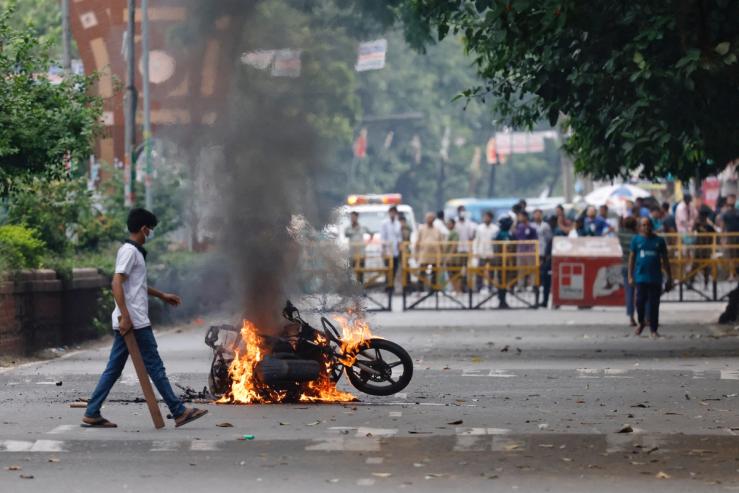The News
Student protesters in Bangladesh stormed a prison Friday and reportedly freed dozens of inmates before setting fire to it, as violent demonstrations over government job quotas have roiled the South Asian nation.
At least 50 people have been killed in the unrest so far, and multiple government buildings have been set on fire. The government banned public demonstrations in the capital of Dhaka on Friday, and arrested a senior opposition leader without explanation.
Hundreds of thousands of students have been protesting since early July against a controversial quota system that reserves more than half of public-sector jobs for select groups, including 30% for family members of veterans of the 1971 independence war against Pakistan.
SIGNALS
Escalation signals worsening political situation in the country
While the roots of the anti-quota student demonstrations go back to at least 2018, the political situation has changed dramatically over the past six years, a Bangladeshi journalist noted in The Diplomat. Discontent toward Prime Minister Sheikh Hasina has grown following her fourth reelection this year, in a campaign that was largely considered rigged and was marked by violence. Now, protesters openly refer to her as a dictator and an autocrat, and the demonstrations reflect a “perfect storm of political and economic grievance.”
Students frustrated over high unemployment rates and a struggling economy
Students frustrated with Bangladesh’s rocky post-pandemic economy and high youth unemployment rate, which reached 16% in 2022, say the quotas deprive them of highly-sought after government work; more than 40,000 graduates are competing for only around 3,000 public sector jobs. “Many students go through the bitter experience of not finding the jobs they deserve after completing their education,” a professor wrote in Bangladeshi outlet Daily Star.
Further violence could exacerbate economic issues
If the unrest continues at this scale, Bangladesh’s already struggling economy could suffer major consequences from the disruption to public services and businesses. An impending economic shutdown would also distract the government from its efforts “to bolster its dwindling foreign exchange reserves,” Bloomberg noted.



